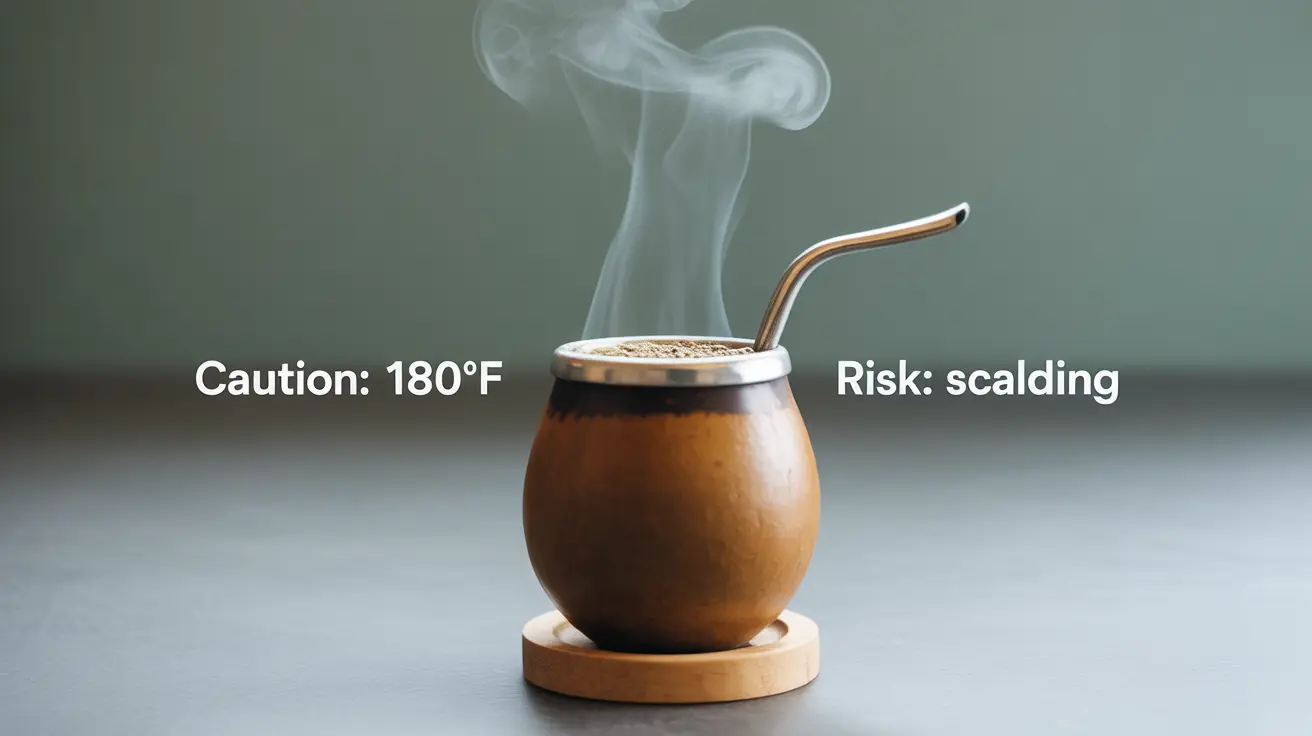Yerba mate, a traditional South American beverage known for its energizing properties and cultural significance, has come under scientific scrutiny due to potential associations with certain types of cancer. This comprehensive guide examines the relationship between yerba mate consumption and cancer risk, exploring key factors that influence this connection.
Understanding these risks is crucial for the millions of people who regularly consume yerba mate, as well as for those considering adding it to their daily routine. Let's delve into the scientific evidence and practical considerations surrounding this popular beverage.
Temperature and Cancer Risk: A Critical Factor
Research has shown that the temperature at which yerba mate is consumed plays a significant role in its potential cancer risk. Very hot mate, traditionally served at temperatures above 149°F (65°C), may cause thermal injury to the esophageal lining, potentially increasing cancer risk over time.
Studies indicate that allowing yerba mate to cool to a more moderate temperature before consumption may help reduce these risks. The repeated exposure to extremely hot liquids appears to be more concerning than the beverage itself.
Understanding PAHs in Yerba Mate
Polycyclic aromatic hydrocarbons (PAHs) are compounds found in yerba mate that have raised concerns among researchers. These substances are formed during the traditional processing of yerba mate leaves, which typically involves smoke-drying.
The presence of PAHs in yerba mate is noteworthy because these compounds have been linked to various types of cancer in scientific studies. The processing method used to prepare the mate leaves significantly influences PAH levels.
Cancer Types Associated with Yerba Mate
Several types of cancer have been associated with heavy yerba mate consumption, particularly when consumed at very high temperatures:
- Esophageal cancer
- Oral cancer
- Laryngeal cancer
- Throat cancer
The risk appears to be most pronounced in populations that consume large quantities of very hot mate over extended periods.
Lifestyle Factors and Combined Risks
The cancer risk associated with yerba mate can be influenced by additional lifestyle factors. When combined with other known risk factors, the potential for adverse effects may increase:
- Smoking tobacco
- Regular alcohol consumption
- Poor dietary habits
- Lack of proper oral hygiene
Safe Consumption Guidelines
To minimize potential risks while enjoying yerba mate, consider these practical guidelines:
- Allow the beverage to cool to a comfortable drinking temperature
- Limit daily consumption to moderate amounts
- Choose mate products from reputable sources
- Consider cold-brewed alternatives
- Pay attention to your body's response
Frequently Asked Questions
Does drinking yerba mate increase the risk of cancer, and which types of cancer are most associated with its consumption?
Yes, regular consumption of very hot yerba mate has been associated with increased risk of certain cancers, particularly esophageal, oral, laryngeal, and throat cancers. The risk appears to be most strongly linked to the temperature of consumption and frequency of use.
How does the temperature of yerba mate affect the risk of developing cancer?
Very hot yerba mate (above 149°F/65°C) may cause thermal injury to the esophageal lining, potentially increasing cancer risk. Drinking mate at more moderate temperatures can help reduce this risk.
What role do polycyclic aromatic hydrocarbons (PAHs) in yerba mate play in cancer risk?
PAHs are carcinogenic compounds present in yerba mate due to the smoke-drying process used in traditional preparation. These compounds have been linked to various types of cancer and contribute to the potential health risks associated with mate consumption.
Does combining yerba mate consumption with smoking or alcohol use increase my cancer risk?
Yes, combining yerba mate with smoking or alcohol consumption can potentially increase cancer risk due to the cumulative effects of these substances on the body, particularly in the mouth, throat, and esophageal regions.
How much yerba mate is considered safe to drink without significantly raising cancer or other health risks?
While there's no universally agreed-upon safe amount, moderate consumption (1-2 cups daily) at cooler temperatures is generally considered less risky. Individual tolerance and overall health status should be considered when determining personal consumption limits.




